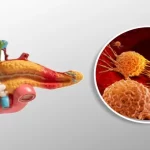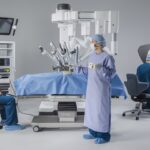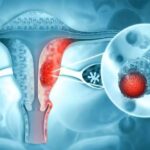
Yes, while male breast cancer is rare it is an important condition to understand. In India, this cancerous disease ranges from 0.5 — 1% of all breast cancer cases, which means that for every 1,000 breast cancer patients, only around 5 to 10 are men. The lifetime risk of a man developing breast cancer is approximately 1 in 833, which may be low, but staying informed is important.
This disease mostly affects older men, with the highest rate around the age of 71. Despite its rareness, being aware of male breast cancer can make a difference when it comes to early detection and treatment. This blog, guided by Dr. M.S.S. Keerthi, a breast cancer specialist in Hyderabad, will explore what male breast cancer is, its risk factors, and important signs to look out for. We’ll also discuss how it is detected and treated, providing valuable insights that could be required for your health.
What is Breast Cancer in Men?
Breast cancer in men occurs when malignant( cancerous) tumors form in the napkins of the male breast. Like in women, these cells can start in different sections of the breast, most generally in the tubes( tubes that carry milk to the nipple) or the lobules( glands that produce milk, though these are less developed in men).
Signs and Symptoms of Breast Cancer in Men:
Dr. M.S.S. Keerthi, a renowned cancer surgeon in Kompally, helps patients recognize the importance of identifying signs and symptoms for early discovery and important treatment outcomes. By being aware of the following crucial signs, you can act instantly and ensure timely medical intervention:
- A lump or swelling near the nipple or underarm.
- Nipple changes (retraction, redness, ulceration).
- Nipple discharge, possibly bloody.
- Skin changes (redness, scaling, dimpling).
- Unexplained pain or tenderness in the breast.
How to Detect Breast Cancer in Men?
- Self-examinations: Regularly check for lumps, changes, or abnormalities in the breast tissue.
- Physical Examination: Have regular check-ups with a healthcare provider to identify any unusual changes.
- Imaging Tests: If symptoms are present, your doctor might recommend a mammogram or ultrasound.
- Biopsy: If a lump or abnormality is found, a vivisection may be performed to confirm if it’s cancerous.
- Genetic Testing: For those with a family history or known threat procurators, testing for inheritable mutations like BRCA can be considered.
Male Breast Cancer Treatment:
- Surgery:
- Mastectomy: This is the most common surgery for male breast cancer and includes the discarding of the entire breast to remove the cancerous tissue.
- Lumpectomy: Less common in men, this procedure removes only the excrescence and a fragile margin of girding tissue.
- Radiation Therapy: After surgery, radiation therapy may be used to destroy any remaining cancer cells in the breast area. This involves targeted high-energy rays and helps to reduce the risk of cancer recurrence.
- Chemotherapy: Chemotherapy uses strong medicines to kill cancer cells throughout the body. It’s frequently given for cases where cancer has spread beyond the breast or in situations where the tumor is high-pressure.
- Hormone Therapy: For diseases that are hormone receptor-positive ( meaning the cancer cells grow in reaction to hormones like estrogen), hormone remedy can be operative. This treatment involves specifics that either block estrogen receptors on cancer cells or reduce the body’s overall estrogen levels.
- Targeted Therapy: This treatment focuses on special molecules or pathways involved in cancer growth. For example, medicines might target proteins like HER2, which are overexpressed in some breast cancers, to inhibit their action and decelerate the tumor of cancer cells. Each treatment plan is personalized based on the cancer’s stage, type, and other individual procurators. Consulting with a healthcare team ensures that the most operative treatment strategy is taken.
Male breast cancer, though rare, requires early concentration and proper care. However, If you’re concerned about this condition. Dr. M.S.S. Keerthi, a leading cancer specialist in Hyderabad with over 15 years of experience, provides expert opinion and compassionate care. With developed techniques in laparoscopic and robotic surgery, she ensures the highest standard of treatment. Do not wait — book an appointment today to address any concerns and receive operative, perfect care.







